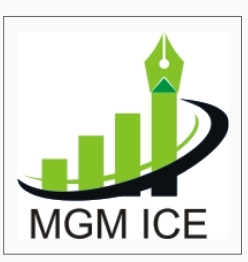Lets communicate the communication
Communication is an important personality trait prevalent amongst all the famous leaders across the globe. Generally, it is assumed that individuals dealing with public life or politics only, need to have a good communication skill, but in reality, communication skill is an important facet of a human being which is required by everybody at every stage of life. In the words of James Humes, a famous author and President Ronald Reagan’s speechwriter, the art of communication is the language of leadership. Considering the significance of communication in professional life, this article tries to throw light on relevant aspects of communication skills in business life of an individual.
Role of Communication in Business-
The word communication has been derived from the Latin word ‘communicare’ means ‘to share’. Communication happens with connection. When two people connect on a personal level, communication becomes effective. Communication is essential for success in any organisation, and the type of communication will vary given the circumstances and business needs. The term management is related with ‘getting things done’ and in this process of ‘getting things done,’ communication plays the most important role in any organisation. Communication is considered as the bloodstream of any organisation. Whether it is issuing simple instructions at work to the subordinates, lifting flagging morale of the business team, working out a better way to meet productivity targets, briefing the business team on customer feedback after a product launch, explaining the vision of your organisation to the team members – communication acts as the pivot of any business venture, from the stage of a Start-up to the stage of attaining a global corporate status.
Business communication differs greatly from regular communication. It refers to the communication that takes place in a work environment and is meant to achieve the common goal of getting the job done and doing it effectively. Business communication could be internal i.e. within the organisation between colleagues or between departments; or it could be external, for instance, a brand-building campaign by a company to build up its image. A variety of career options are emerging nowdays with focus on these communication skills. Many career opportunities related to marketing, customer care, corporate communications, public relations, brand management, advertising, event management – demands mastery over communication skills. The number of platforms that are being used for business communication has exploded in recent times. Whereas telephone and email were once the most oft-used medium, now online meetings, videoconferencing, teleconferencing, voice messages and even web chat and instant messaging are dominating the scenario. When it comes to a company targeting a large audience, videos, powerpoint presentations (PPT), blogs, apps, social media and television come to the rescue and with all these platforms available at the tap of the finger, let’s not forget where it all began – good, old-fashioned face-to-face communication! The varieties of business communication skills include – an effective speaking or verbal communication skill; an effective writing skill; a patient listening skill and so on. It is to be noted that an ‘Effective listening’ is a winning tool in every manager’s toolkit, for it implies the ability to put oneself in someone else’s shoes, something every employee craves – an empathetic ear. One has to take that attitude to a much larger level so that yours would be the unique organisation which listens to what its clients, customers and even the competitors has to say. A company that listens effectively is one that is open to ideas, feedback, innovations, has good organisational relationships – is willing to correct its mistakes and inevitable marches forward.
Barriers to communication –
There can be barriers to communication which results into failure of transmission of intended messages to the targeted audience. Barriers to effective communication can retard or distort the message or intention of the message being conveyed. It may result in failure of the communication process or cause an effect that is undesirable. These include filtering, selective perception, information overload, emotions, language, silence, communication apprehension, gender differences and political correctness. Some of the important types of communication barriers include physical barriers, attitudinal barriers, perceptual barriers, cultural barriers and the linguistic barriers. Whether one likes it or not, English language is globally considered as the ‘lingua franca of business’. The command over English language would certainly boost the impact of a communicator in any business communication.
There is a vacuum of leadership in various aspects of life, be it personal, social, political or business life! The sharpening of communication skills would prove to be an all important asset to emerge as a leader because in the words of James Humes, the art of communication is the language of leadership. If the skill of communication is so much significant in everyone’s life then don’t hesitate, but try to communicate the communication! It is apt to conclude here with a quote-
“Wise men speak because they have something to say; Fools because they have to say something.” — Plato
( The author of this article ,Lt Col (Dr) Satish Dhage, is an ex Army officer and has been qualified for IPS (Indian Police Services) through IPS LCE 2012. Presently, he is Director, MGM Institute of Competitive Exams Aurangabad. For any queries or feedback, he can be contacted on email id : drsatishdhage@gmail.com)



